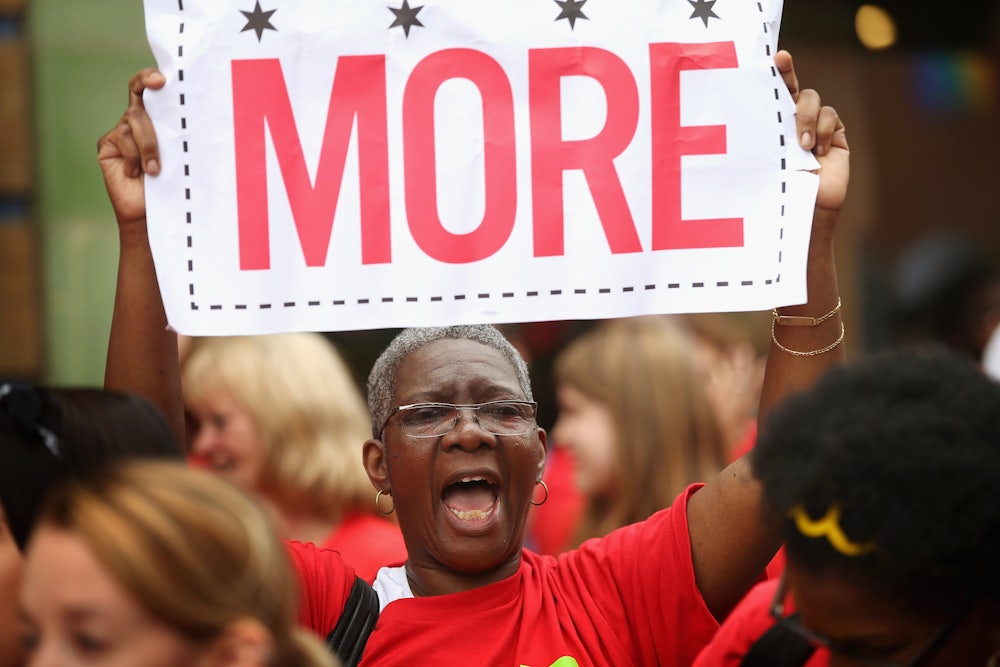“The Status of Black Women in the United States,” released on Wednesday by the Institute for Women’s Policy Research, the National Domestic Workers’ Alliance, the Novo Foundation, and the Ford Foundation, is the latest evidence that economic justice is an essential plank of any anti-racist platform.
Some choice conclusions from the report:
Black women vote at comparatively high rates and had a higher voting rate than all other groups of men and women during the last two presidential elections.
Black women remain underrepresented at every level of federal and state political office in the United States.
Voter identification laws have been found to disproportionately reduce Black voter turnout in multiple states, potentially due to the fact that fewer Blacks possess the specific forms of identification required by these laws compared with other racial and ethnic groups.
Black women’s median annual earnings ($34,000 for those who work full-time, year-round) lag behind most women’s and men’s earnings in the United States.
Union representation boosts Black women’s earnings and reduces gaps in earnings between Black women and other workers; Black women represented by a union earn an average of $192.10, or 32.2 percent, more per week than Black women in nonunion jobs. In the South, where right-to-work laws are twice as common as the rest of the country, unionized Black women experience an even greater union advantage and earn 34.5 percent more than their non-union counterparts.
About 28 percent (27.7 percent) of employed Black women work in service occupations, the occupational group with the lowest wages. Jobs in this broad occupational group often lack important benefits such as paid sick days.
There are a few important observations to glean from this data. First, given the structural forces against them, it’s obvious that hard work isn’t enough to pull black women up the economic ladder. Second, black women benefit from strong unions. And third, black women are disproportionately likely to benefit from a higher minimum wage. This is not news to black women, obviously: People of color are leading the fight for livable wages.
The report’s authors offer a few potential solutions: a higher minimum wage, the expansion of Medicaid, and the elimination of right-to-work and voter ID laws. Those are reasonable recommendations, and the Democratic Party should embrace them, along with a renewed commitment to strengthening the country’s embattled unions.
